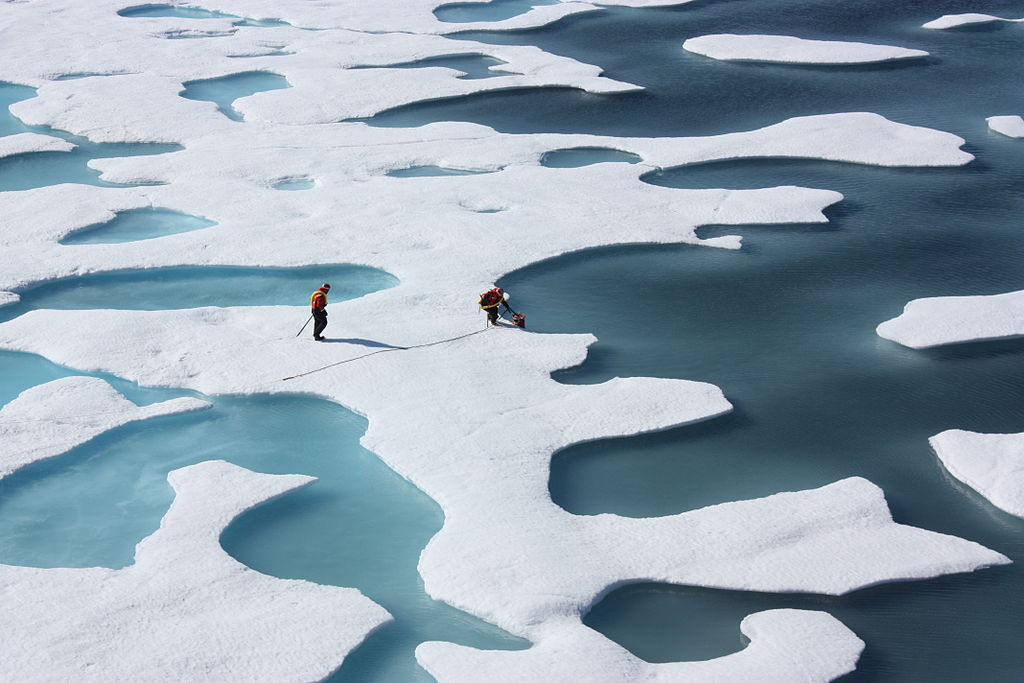
Stephen Lezak publishes a mediation on climate change and co-authors a petition for action
In the present, we are reorienting ourselves to a new Arctic, one which embodies speed alongside stillness in an unstable tension. Climate change has perforated the identity of the place.
Stephen Lezak
A Gates Cambridge Scholar has called for the US federal government to establish a national, robust and legally binding net-zero target that emphasises comprehensiveness, equity and clarity on the role of offsets.
In an opinion piece in Arizona Republic, Stephen Lezak and his co-authors, including Kate Gallego, the mayor of Phoenix, Arizona, which has done pioneering work on climate change, say that the target must include an interim goal, such as committing to a 50% reduction in greenhouse gas emissions from 2005 levels by 2030.
They also say that all recipients of federal funding, including for infrastructure and economic recovery spending, must be aligned with net-zero goals. To achieve this, they say, financial bailouts should be reformed to require that partners across the public and private sectors have a net zero target.
Another suggestion in an article which highlights the innovative work of state governments and the private sector during the Trump years, is for the Biden administration to create a portfolio of frameworks for cities, states and companies to assist in drafting targets and reporting them in a method that allows for comparisons.
The authors, who also include academics Kaya Axelsson and Kate Cullen, say: “These actions will help catalyse US climate federalism in this decisive decade.”
The Arctic: past, present and future
Stephen [2019], who is doing a PhD in Polar Studies and is programme manager of Sustainable Future of Commodities & Infrastructure at the Smith School of Enterprise & the Environment at the University of Oxford, has also recently published a more literary-style article about the Arctic – its past, present and future.
The article, Meltwater: a timepiece for the Arctic, is published in Emergence magazine.
It talks about how the Arctic has been imagined and how that imaginary depiction is changing due to climate change. Stephen writes: “In the present, we are reorienting ourselves to a new Arctic, one which embodies speed alongside stillness in an unstable tension. Climate change has perforated the identity of the place. Somehow, it remains otherworldly and sublime. But breathless reports tell of an imminent collapse, a sombre herald of things to come.”
He adds: “It is rehearsing a climatic future for the rest of us. Far from moving slowly, as earlier visitors observed, the High North is outpacing the rest of the world.”
He talks about the history of the region and the impact of colonisation, the erasure of indigenous cultures and industrialisation.
He says: “Far from being pristine, the modern history of the Arctic is one of extraction and genocide. And with climate change, the scale and scope of human impacts are gathering momentum.”
Yet, even so, Stephen says it still retains its sense of otherness. “In the actual presence of the landscape, it becomes possible to discern something on the far side of destruction that will continue to humble us for as long as we are around to bear witness,” writes Stephen. “Here, amidst declarations of impending apocalypse, we still encounter an irreducible other.”
*NASA Goddard Space Flight Center from Greenbelt, MD, USA courtesy of Wikimedia commons.












